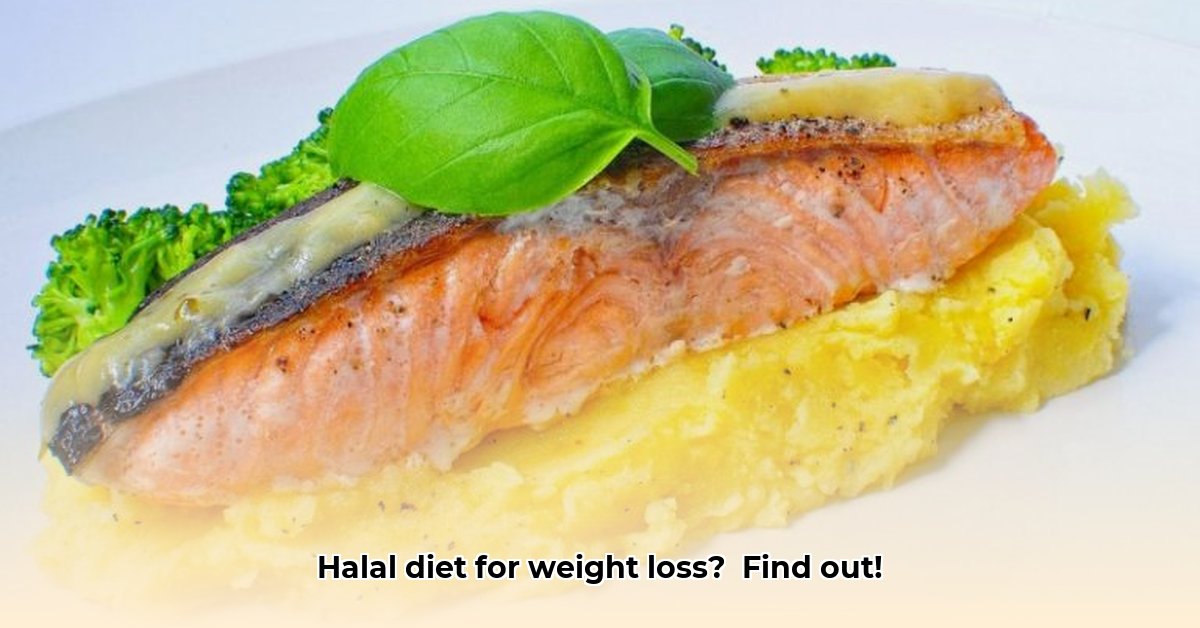
Understanding Halal and Healthy Eating: A Winning Combination
Many wonder if halal food automatically leads to weight loss. The truth is more nuanced. Halal, meaning permissible in Islamic law, doesn't inherently guarantee weight loss or gain. However, the principles of halal eating often align beautifully with healthy weight management strategies. A focus on whole, unprocessed foods—lean proteins, fruits, vegetables, and whole grains—is a cornerstone of both halal dietary guidelines and successful weight loss. The key lies in making mindful choices within the realm of halal options. Are you choosing nutrient-rich, whole foods, or processed items that might be high in unhealthy fats and added sugars?
Creating Your Personalized Halal Weight Loss Plan: A Step-by-Step Guide
Effective weight loss hinges on creating a calorie deficit—burning more calories than you consume. This isn't about restriction; it's about making informed choices. A personalized approach is vital.
Step 1: Consult a Registered Dietitian (RD). This crucial first step ensures your plan caters to your individual needs, preferences, health history, and any existing dietary concerns. An RD provides tailored guidance, and it's especially important to work with someone who understands halal dietary principles.
Step 2: Track Your Calories and Macros (Optional). Monitoring your calorie and macronutrient (protein, carbohydrates, fats) intake provides valuable insight into your eating habits. Numerous apps and websites simplify this process. This isn't about obsessive counting; it's about mindful awareness. Do you consistently understand your daily calorie needs?
Step 3: Embrace Whole, Unprocessed Halal Foods. Prioritize lean proteins (chicken breast, fish, lentils), an abundance of colorful fruits and vegetables, and whole grains (brown rice, quinoa). These foods offer sustained energy and satiety, minimizing cravings.
Step 4: Master Meal Planning. Preparing meals and snacks in advance combats impulsive unhealthy choices. This proactive approach ensures you stay on track with your goals. How effective is meal prepping in helping you adhere to your diet?
Step 5: Practice Portion Control. Even healthy foods can hinder weight loss if consumed in excess. Learn appropriate portion sizes for your needs; your RD can be a valuable guide.
Sample Halal Meal Plan (Consult your RD for a customized plan):
| Meal | Example | Nutritional Benefits |
|---|---|---|
| Breakfast | Scrambled eggs with spinach and whole-wheat toast | High protein, fiber-rich, and low in calories. |
| Lunch | Chicken and vegetable stir-fry with brown rice | Lean protein, vitamins, fiber. |
| Dinner | Baked salmon with roasted sweet potatoes | Healthy fats, vitamins, and complex carbohydrates. |
| Snacks | Greek yogurt with berries; almonds | Protein, calcium, antioxidants, healthy fats. |
Addressing Common Challenges
Navigating a halal weight-loss journey may present unique challenges. Here’s how to overcome them:
Access to Healthy Halal Ingredients: Explore local halal butchers, specialized grocery stores, and online retailers. Be resourceful! How can you find affordable and convenient ways to procure a wide range of healthy halal foods?
Cultural Factors: Involve your family and friends. Adapt your recipes and meal plans to incorporate everyone's preferences and make healthy eating a shared endeavor.
Temptation: Setbacks are inevitable. Learn from them, and don't let minor slips derail you from your progress. Remember that consistency, not perfection, is key.
Seeking Professional Guidance: The Importance of Personalized Support
While this guide offers valuable information, individual needs and health conditions vary. For a personalized and effective halal weight loss plan, consulting a registered dietitian or nutritionist is crucial. They provide expert guidance tailored to your unique circumstances.
Conclusion: Your Halal Weight Loss Journey
Sustainable and successful weight loss within a halal framework is achievable through a personalized plan, mindful food choices, and potentially, professional support. Remember, it's a journey, not a race – celebrate your progress and enjoy the process!